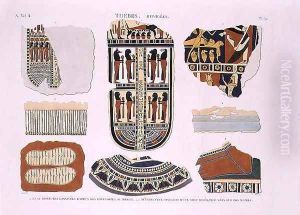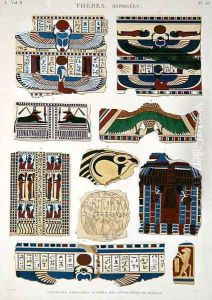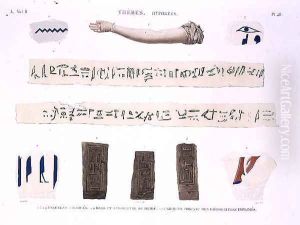Jomard Paintings
Édouard François Jomard was a French cartographer, engineer, and scholar, notable for his role in the scholarly investigation of Egypt. Born on November 19, 1777, in Versailles, France, Jomard was initially educated in mathematics and showed a strong aptitude in this field. His skills led to his selection as a member of the scientific commission that accompanied Napoleon Bonaparte's military expedition to Egypt in 1798.
Jomard's work in Egypt was part of a broader French initiative to study and document the country's ancient civilization, a project that resulted in the publication of the monumental 'Description de l'Égypte'. As a cartographer and engineer, Jomard contributed significantly to the mapping of Egypt and the exploration of its ancient monuments, including the famed Rosetta Stone, which played a key role in deciphering Egyptian hieroglyphs.
After returning to France, Jomard's career continued to flourish. He served as a member of several learned societies, including the Institut de France, and he remained deeply involved in the study and preservation of ancient Egyptian history and artifacts. His dedication to the field was evident in his role in founding the Société de Géographie in 1821, the world's oldest geographical society, and his efforts in establishing the field of Egyptology as a respected academic discipline.
Jomard's contributions to the field of Egyptology and cartography were widely recognized during his lifetime. He was appointed to various prestigious positions, including that of the director of the Dépôt Général de la Marine, a position that placed him in charge of French naval and colonial cartography.
Édouard François Jomard passed away on September 22, 1862, leaving behind a legacy as a pioneering figure in the study of Egypt and the broader discourse of Orientalism. His works continue to be referenced by scholars and enthusiasts of Egyptian history, and his influence on the fields of cartography and Egyptology remains significant to this day.


